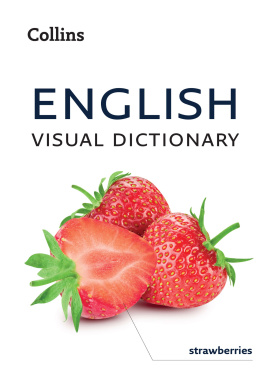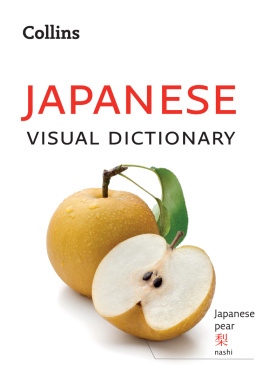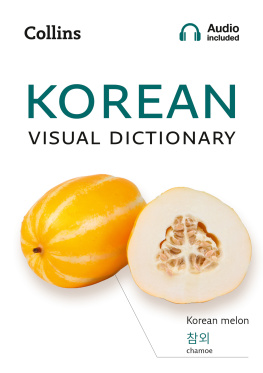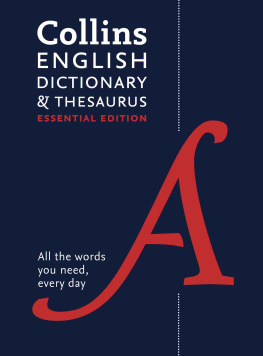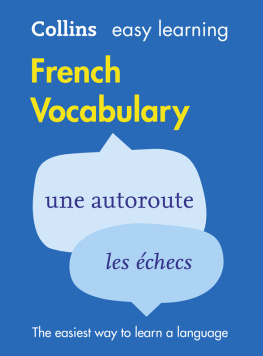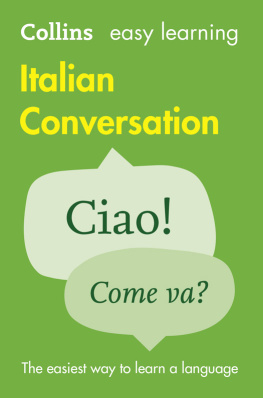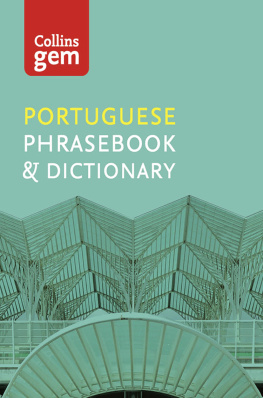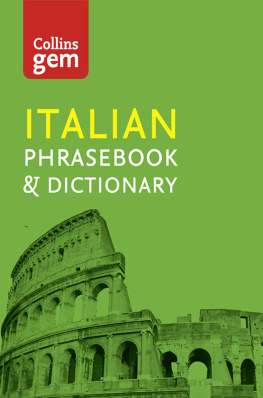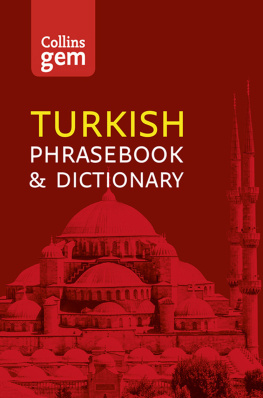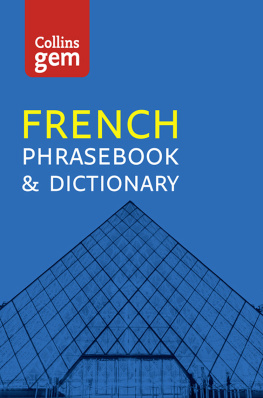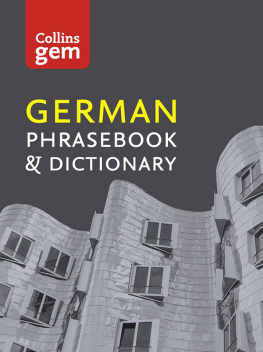This phrasebook includes a two-way dictionary which can be searched at any time using the link at the end of each chapter, or by using the menu to move to the back of the phrasebook. You can use the back button to return to where you were in the phrasebook.
Your Collins Gem Phrasebook is designed to help you locate the exact phrase you need, when you need it, whether on holiday or for business. If you want to adapt the phrases, you can easily see where to substitute your own words using the dictionary section, and the clear layout gives you direct access to the different topics.
The Gem Phrasebook includes:
- Over 70 topics arranged thematically. Each phrase is accompanied by a simple pronunciation guide which eliminates any problems pronouncing foreign words.
- A Top ten tips section to safeguard against any cultural faux pas, giving essential dos and donts for situations involving local customs or etiquette.
- Practical hints to make your stay trouble free, showing you where to go and what to do when dealing with everyday matters such as travel or hotels and offering valuable tourist information.
- Face to face sections so that you understand what is being said to you. These example mini-dialogues give you a good idea of what to expect from a real conversation.
- Common announcements and messages you may hear, ensuring that you never miss the important information you need to know when out and about.
- A clearly laid-out 3000-word dictionary means you will never be stuck for words.
- A basic grammar section which will enable you to build on your phrases.
- A list of public holidays to avoid being caught out by unexpected opening and closing hours, and to make sure you dont miss the celebrations!
Its worth spending time before you embark on your travels just looking through the topics to see what is covered and becoming familiar with what might be said to you.
Whatever the situation, your Gem Phrasebook is sure to help!
Contents
Czech contains some unfamiliar letters and a few difficult sounds for English speakers. The letters b d f g h k l m n p s t v x and z sound the same as in English. Note that g is always hard as in lag, never soft as in large, and s is always hissed as in less, never like z as in Les. The stress is always on the first syllable of the word. The pronunciation guide in this book uses hyphens to separate the syllables. The letters l and r can be a syllable in their own right, e.g. Vltava (vl-ta-va), sprcha (sprr-kha), and h is always pronounced, even at the end of a word, e.g. pstruh (pstroo-h). See ALPHABET for a full list of the pronunciation symbols we use.
| Consonants |
| c | is pronounced like ts in bits, not like k or s |
| is pronounced like ch in church |
| ch | (considered a separate letter) is pronounced like the rasping ch in the Scottish word loch, not like ch in church |
| is pronounced like sh in shut |
| j | is pronounced like y in yes |
| d | is something like the sound in led you; we show this in the pronuciation guide with a small raised y, e.g. ted (tedy) |
| t | is something like the sound in let you, e.g. let (lety) |
| is pronounced like ni in onion, e.g. Plze pl-zeny |
| is an unusual sound combining rolled r and zh, e.g. Dvok (dvo-rzhak). If you cant manage it, try saying zh instead. |
| Vowels |
| a | is pronounced as in fat, not as in fate |
| e | is pronounced as in pet, not as in Pete |
| i | is pronounced as in pill, not as in pile |
| o | is pronounced as in pop, not as in pope |
| u | is pronounced like oo in book, not as in tub or tube |
| y | is pronounced as in hill, not as in yeti |
Vowels can be long or short. When the vowel is long, shown in Czech by an accent (e.g. or ), we highlight it in bold, i.e. tabkta-bak. You will also see combinations of vowels such as au (aw) and ou (ow), like ouch and coach respectively.
Czechs remove their shoes when entering a home and leave them outside.
The Czech Republic has a zero-tolerance policy on alcohol consumption, so even a single beer before driving could get you into trouble.
Always wait to be invited to use somebodys first name.
If you receive a gift, you should open it immediately and in front of the giver.
Acknowledge people in lifts, train compartments and shop counters by saying, dobr den (hello) and nashledanou (goodbye).
Avoid hailing a taxi in the street. Its best to phone a taxi firm and make sure the driver turns on the meter.
In restaurants, expect to sit with other people if there is space others will sit with you. Always ask for permission first.
When giving flowers, always give them in odd numbers. Even numbers are given at funerals.
Most Czechs know which mushrooms to pick in the woods and are prepared to get up at 4 oclock in the morning to do so. Picking mushrooms is the Czech national passion.
Most people leave for their chata (a weekend house in the country) on Friday afternoon and come back on Sunday evening. This means that Prague is empty of locals at weekends and heavy traffic should be expected going out of and into Prague on these days.
In 1993 Czechoslovakia ( eskoslovensko ) split into the Czech Republic ( esk Republika ), comprising Bohemia ( echy ) and Moravia ( Morava ), and Slovakia ( Slovensko ). The adjective esk refers either generally to both the Czech lands or specifically to Bohemia. The Slovak language is different from Czech, but Czech will be understood in Slovakia.
| Yes | Ano
a-no |
| No | Ne
ne |
| Excuse me/sorry/pardon? | |


